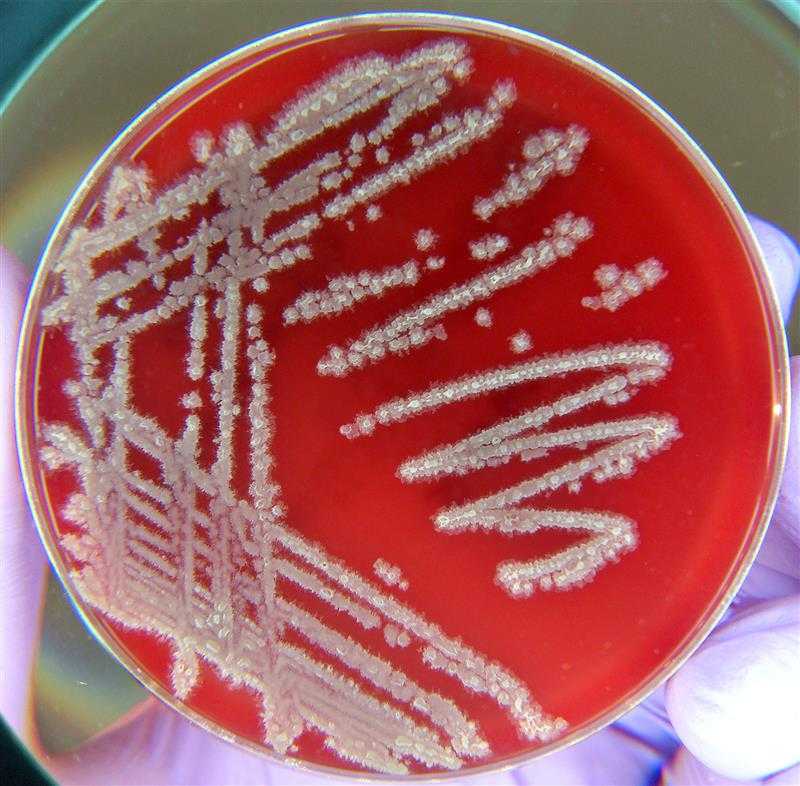标签:
Bacillus licheniformis colonies growing on the blood agar. Colonies shown with reflected light.

地衣芽孢杆菌细胞形态和排列呈杆状、单生,可调整菌群失调达到治疗目的,可促使机体产生抗菌活性物质、杀灭致病菌。能产生抗活性物质,并具有独特的生物夺氧作用机制,能抑制致病菌的生长繁殖。
地衣芽孢杆菌(学名:Bacillus licheniformis)是一种在土壤中常见的细菌。在鸟类,特别是居住在地面的鸟类(如雀科)和水生的鸟类(如鸭)的羽毛中也能找到这种细菌,特别是胸部和背部的羽毛中。
地衣芽孢杆菌是一种革兰氏阳性的嗜热细菌。它的最适生长温度大约为30℃,但也能在更高的温度下存活。酶分泌的最适温度为37℃。它可能以孢子形式存在,从而抵抗恶劣的环境;在良好环境下,则可以生长态(vegetative state)存在。

In 2012, scientists from Newcastle University studying Bacillus licheniformis as a possible agent to clean ships‘ hulls isolated an enzyme that has proven to be an unexpected tooth decay fighter as it has the ability to cut through plaque or a layer of bacteria.
标签:
原文地址:http://www.cnblogs.com/biopy/p/4638252.html